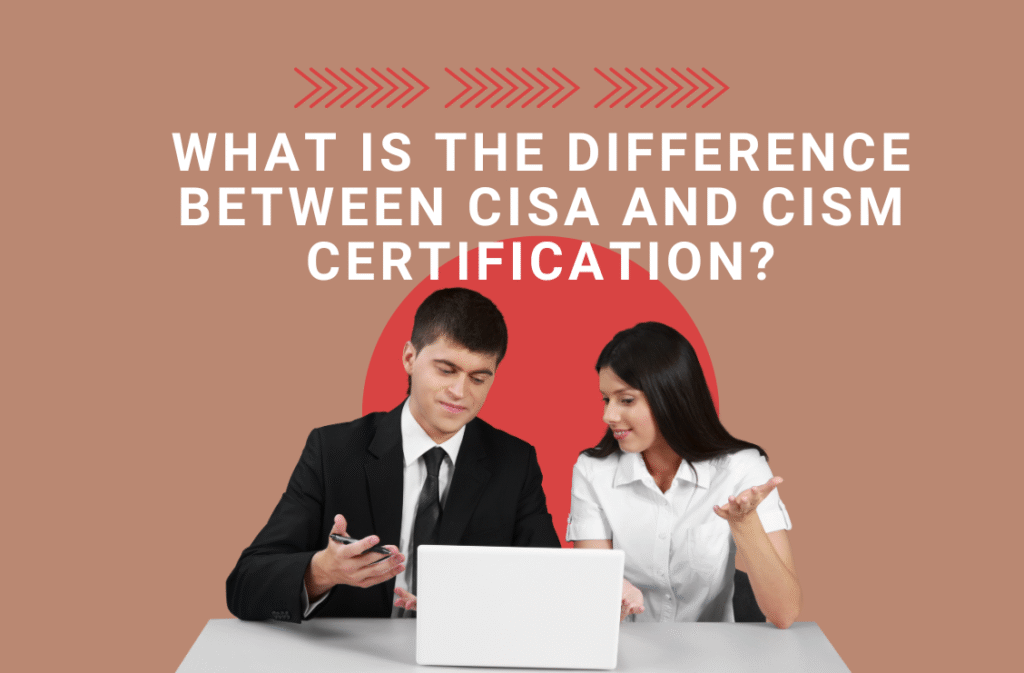In the ever-evolving field of information security and IT governance, certifications play a crucial role in validating expertise and advancing careers. Among the most sought-after certifications in this domain are the Certified Information Systems Auditor (CISA) and the Certified Information Security Manager (CISM). While both are globally recognized and offered by ISACA, they cater to different professional roles and skillsets. Let’s explore the key differences between these two certifications and determine which might be the right fit for your career.
1. Purpose and Focus
- CISA (Certified Information Systems Auditor): The CISA certification is designed for professionals who audit, control, monitor, and assess information systems and IT environments. It focuses on ensuring that IT systems are secure, efficient, and compliant with organizational and regulatory requirements.
- CISM (Certified Information Security Manager): The CISM certification, on the other hand, is tailored for individuals responsible for managing and overseeing an organization’s information security program. It emphasizes strategic leadership, risk management, and governance rather than technical auditing.
2. Target Audience
- CISA:
- IT Auditors
- Compliance Officers
- Risk Analysts
- Professionals involved in IT governance and assurance
- CISM:
- Information Security Managers
- IT Risk Managers
- Cybersecurity Program Directors
- Professionals aspiring to leadership roles in information security
3. Core Domains
- CISA Domains:
- Information Systems Auditing Process
- Governance and Management of IT
- Information Systems Acquisition, Development, and Implementation
- Information Systems Operations and Business Resilience
- Protection of Information Assets
- CISM Domains:
- Information Security Governance
- Information Risk Management
- Information Security Program Development and Management
- Incident Management
4. Skillsets Validated
- CISA:
- Auditing skills
- IT governance and compliance knowledge
- Ability to assess and mitigate IT risks
- Proficiency in evaluating IT controls and processes
- CISM:
- Leadership in information security
- Strategic alignment of security programs with business goals
- Risk management expertise
- Incident response and crisis management
5. Eligibility Requirements
- CISA:
- A minimum of 5 years of professional experience in information systems auditing, control, or security.
- Waivers for up to 3 years of experience are available based on education or certain other certifications.
- CISM:
- A minimum of 5 years of professional experience in information security management.
- At least 3 of those years must be in information security management across the CISM domains.
- Experience waivers are also available for certain qualifications.
6. Exam Details
- CISA:
- Number of Questions: 150 (multiple choice)
- Duration: 4 hours
- Passing Score: 450 out of 800
- Focus: Practical application of IT auditing knowledge
- CISM:
- Number of Questions: 150 (multiple choice)
- Duration: 4 hours
- Passing Score: 450 out of 800
- Focus: Strategic and managerial aspects of information security
7. Career Pathways
- CISA:
- IT Auditor
- Compliance Analyst
- Risk and Assurance Consultant
- Systems Auditor
- CISM:
- Information Security Manager
- IT Risk Manager
- Chief Information Security Officer (CISO)
- Cybersecurity Director
8. Which Certification is Right for You?
The choice between CISA and CISM depends on your career goals and current role:
- Choose CISA if:
- You are starting your career in IT audit, compliance, or governance.
- You want to focus on auditing IT systems and ensuring regulatory compliance.
- Choose CISM if:
- You aspire to leadership roles in information security.
- You are interested in managing security programs and aligning them with business objectives.
Conclusion
Both CISA and CISM are prestigious certifications that can significantly enhance your professional credentials. While CISA focuses on auditing and assurance, CISM emphasizes strategic management and leadership in information security. Understanding their differences can help you make an informed decision and choose the certification that aligns with your career aspirations.
No matter which path you take, both certifications demonstrate a commitment to excellence in the field of information systems and cybersecurity, paving the way for rewarding career opportunities.

